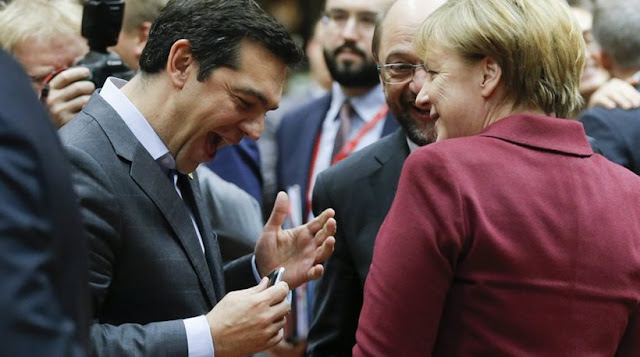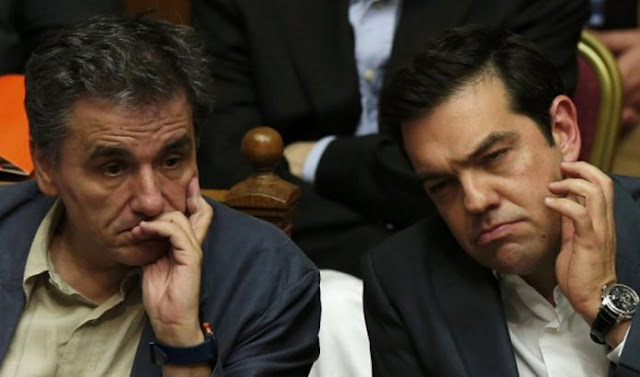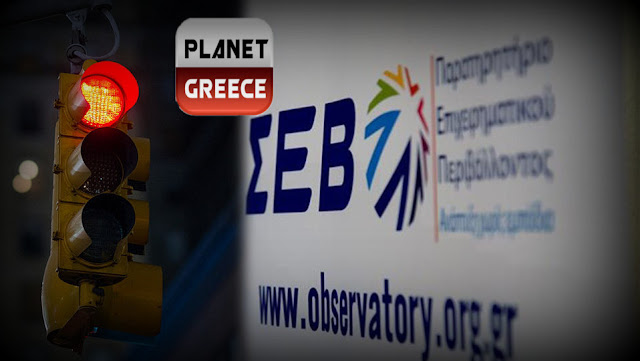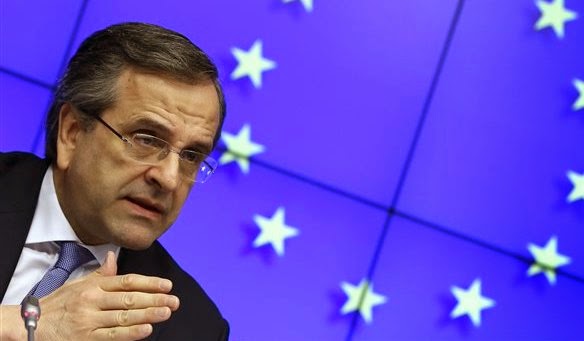Δείτε το απορρητο έγγραφο
Ιδιαίτερο ενδιαφέρον έχουν μία σειρά τηλεγραφημάτων για μία παρτίδα από αμερικάνικα μαχητικά αεροσκάφη F-16 που όπως αποδείχτηκε έχουν μεγάλες ελλείψεις μέχρι και σήμερα.
Το Μάρτιο του 2000 ο τότε υπουργός Άμυνας, Άκης Τσοχατζόπουλος υπογράφει την παραγγελία για 60 (Peace Xenia III) F-16 στην τιμή των 2 δισεκατομμυρίων δολαρίων. Τα αεροσκάφη είναι της αμερικάνικης εταιρείας Locκhead Martin ενώ το σύστημα αυτοπροστασίας είναι μίας άλλης αμερικανικής εταιρείας, της Raytheon. Τα αεροσκάφη παραλαμβάνονται το 2003 και από την αρχή το σύστημα αυτοπροστασίας τους δεν λειτουργεί. Το σύστημα αυτοπροστασίας στα μαχητικά αεροσκάφη θεωρείται απολύτως απαραίτητο, καθώς χωρίς αυτό, το αεροσκάφος δεν έχει κανένα τρόπο να προστατευθεί ή να αντιμετωπίσει οποιουδήποτε είδους επίθεση, και είναι – όπως χαρακτηριστικά ονομάζεται – τυφλό.
Εννιά χρόνια μετά από την παραγγελία το πρόβλημα με το σύστημα αυτοπροστασίας των F-16 φαίνεται σύμφωνα με την ίδια σειρά τηλεγραφημάτων να μην έχει λυθεί ακόμη. Έτσι, τα «τυφλά F16» είναι από τα πρώτα θέματα που φαίνεται να συζητά ο νέος Υπουργός Αμύνης, Ευάγγελος Βενιζέλος με τον Αμερικανό πρέσβη Σπέκχαρντ. Στο τηλεγράφημα της 4ης Νοεμβρίου του 2009 ο αμερικανός πρέσβης ενημερώνει το Στέιτ Ντιπάρτμεντ για «τα παράπονα» του Υπουργού Αμύνης σε σχέση με την λειτουργία των F-16. «Ο υπουργός παραπονιέται για ένα πρόβλημα που έχουν το σύστημα αυτοπροστασίας στο Peace Xenia III F-16 και ότι οι αμερικανικές εταιρείες πρέπει να αναλάβουν μεγαλύτερη ευθηνή», γράφει ο Σπέκχαρντ σημειώνοντας δίπλα σε παρένθεση, ότι το πρόβλημα προέκυψε λόγω παγωμένων διαπραγματεύσεων μεταξύ της αμερικανικής εταιρείας Raytheon και του ελληνικού υπουργείο Άμυνας, κι έτσι «κανένα από τα αεροσκάφη δεν έχει εγκατεστημένο το σύστημα αυτοπροστασίας».
Ένα μήνα αργότερα, ο Βενιζέλος επισκέπτεται ξανά τον Αμερικανό πρέσβη για το ίδιο θέμα. Στο τηλεγράφημα 09ATHENS1605 που έπεται της συνάντησης, ο Βενιζέλος φαίνεται να επαναλαμβάνει στον πρέσβη ότι το φταίξιμο είναι της αμερικανικής εταιρεία Raytheon, αλλά αυτή τη φορά ζητά και την βοήθειά του προς επίλυση της διαφοράς. Στο περιθώριο της συνάντησης ο πρέσβης ρωτά τον Βενιζέλο και για τα δημοσιεύματα που τον φέρουν να έχει αποφασίσει αγορά Eurofighter για να καλύψει τις ανάγκες σε μαχητικά αεροσκάφη νέας γενιάς. «Μην ακούτε αυτά που γράφονται γιατί είναι ανακριβή» απαντά ο Βενιζέλος στον Σπέκχαρντ, διαβεβαιώνοντας τον ότι δεν έχει πάρει «καμία απόφαση ακόμα».
Ο πρέσβης κλείνει το τηλεγράφημα με ένα προσωπικό σχόλιο. «Η συναλλαγή μεταξύ της Raytheon και της Ελληνικής κυβέρνησης είναι απευθείας εμπορική και όχι διακρατική».
Δείτε το απορρητο έγγραφο
10ATHENS93
| ID : | 248586 |
|---|---|
| RefID : | 10ATHENS93 |
| Date : | 12/2/2010 11:25:00 πμ |
| Origin : | Embassy Athens |
| Classification : | CONFIDENTIAL |
- Header :
- VZCZCXYZ0000 OO RUEHWEB DE RUEHTH #0093 0431125 ZNY CCCCC ZZH O R 121125Z FEB 10 FM AMEMBASSY ATHENS TO RUEHC/SECSTATE WASHDC IMMEDIATE 1526 INFO RHMFISS/JOINT STAFF WASHINGTON DC RUEHTH/AMEMBASSY ATHENS RUEKJCS/HQ USEUCOM LO WASHINGTON DC RUEKJCS/SECDEF WASHINGTON DC
C O N F I D E N T I A L ATHENS 000093
SIPDIS
E.O. 12958: DECL: 2020/02/12
TAGS: PREL, MASS, ECON, GR
SUBJECT: AMBASSADOR AND MOD DISCUSS FIGHTER PROCUREMENT
REF: 09 ATHENS 1605
CLASSIFIED BY: Daniel V. Speckhard, Ambassador; REASON: 1.4(B), (D)
1. (C) SUMMARY. The Ambassador called Defense Minister Venizelos
February 11 following press reports that the Minister indicated
Greece had already decided to meet its next generation fighter
needs with the Eurofighter. The Minister reassured the Ambassador
that press reports were inaccurate, and that Greece´s fighter
procurement, which would not be decided until the end of 2010,
would proceed in a transparent, open framework. The Ambassador
urged the Minister to deliver on his pledge of transparency, and
for the Greek decision to be based on price, value, and Greece´s
security needs, not politics. American firms would be strong
competitors in such a framework. Venizelos agreed, but complained
again about longstanding problems regarding the ASPIS II defensive
systems suite on 60 Peace Xenia III F-16´s, and asked for the
Ambassador´s help. END SUMMARY.
2. (U) Greek press, rampant with speculation in advance of PM
Papandreou´s May 9-10 trip to Paris that France and Germany would
support EU assistance aimed at abating Greece´s economic crisis,
reported February 11 that the price of this assistance was Greek
procurement of European weapons systems, such as the Eurofighter
and the French-built FREMM class frigate. Building on a Venizelos
statement that Greece´s decision to procure its next generation
fighter aircraft would be made by the end of 2010, media outlets
reported that the GoG had likely decided already to go with the
Eurofighter, given German pressure.
3. (C) During his call, Venizelos assured Ambassador Speckhard
that press reports were inaccurate concerning the Eurofighter.
While the Greek government is seeking to decide on which next
generation fighter to purchase by December 2010, it was premature
to comment on individual aircraft, he said. The Minister stated
that the procurement process would be transparent and open, and
that he knew of the interest of U.S. firms in competing for the
tender. He stressed to the Ambassador that Greece was a strong,
credible partner, and the process would be above-board.
4. (C) The Ambassador urged the Minister to deliver on his pledge
of transparency, and for the Greek decision to be based on price,
value, and Greece´s security needs, not politics. U.S. firms more
than hold their own in a competitive and transparent marketplace,
he added, and reminded Venizelos of the additional value U.S.
products represented during this time of economic difficulty in
Greece.
5. (C) MOD Venizelos raised a longstanding concern, first broached
with the Ambassador in their initial meeting on November 4
(reftel), that none of Greece´s 60 Peace Xenia III F-16´s have
their ASPIS II defensive system suites installed. Venizelos
believes that the U.S. producer of ASPIS II, Raytheon, is at fault.
He asked for the Ambassador´s assistance in resolving the impasse.
(ODC NOTE: Raytheon and the General Directorate for Defense
Investment and Armaments (GDDIA) have been in negotiations over
ASPIS II for more than one year to resolve differences to no avail.
At issue is the Greek belief that Raytheon did not meet the
requirements and specifications of the contract, to include
timelines, while our understanding is that Raytheon believes it has
addressed all issues in good faith and fixed any shortfalls with
the system, and that Greece is pushing for more than what the
original contract stipulated.)
6. (C) COMMENT: The transaction between Raytheon and the Greek
government was a direct commercial sale, not FMS. While official
U.S. options are limited, this major, Minister-level snag in the
Peace Xenia III F-16 program combined with the political pressure
from Greece´s European partners to buy the Eurofighter may not help
the case of U.S. firms over the course of the year as Greece
formulates its procurement decision. . However, since the Peace
Xenia IV aircraft have the APSIS II included in the FMS
procurement, this could be merely an excuse if Greece succumbs to
pressure to buy the more expensive Eurofighter. END COMMENT.
Speckhard
;2010-02-12 11:25
SIPDIS
E.O. 12958: DECL: 2020/02/12
TAGS: PREL, MASS, ECON, GR
SUBJECT: AMBASSADOR AND MOD DISCUSS FIGHTER PROCUREMENT
REF: 09 ATHENS 1605
CLASSIFIED BY: Daniel V. Speckhard, Ambassador; REASON: 1.4(B), (D)
1. (C) SUMMARY. The Ambassador called Defense Minister Venizelos
February 11 following press reports that the Minister indicated
Greece had already decided to meet its next generation fighter
needs with the Eurofighter. The Minister reassured the Ambassador
that press reports were inaccurate, and that Greece´s fighter
procurement, which would not be decided until the end of 2010,
would proceed in a transparent, open framework. The Ambassador
urged the Minister to deliver on his pledge of transparency, and
for the Greek decision to be based on price, value, and Greece´s
security needs, not politics. American firms would be strong
competitors in such a framework. Venizelos agreed, but complained
again about longstanding problems regarding the ASPIS II defensive
systems suite on 60 Peace Xenia III F-16´s, and asked for the
Ambassador´s help. END SUMMARY.
2. (U) Greek press, rampant with speculation in advance of PM
Papandreou´s May 9-10 trip to Paris that France and Germany would
support EU assistance aimed at abating Greece´s economic crisis,
reported February 11 that the price of this assistance was Greek
procurement of European weapons systems, such as the Eurofighter
and the French-built FREMM class frigate. Building on a Venizelos
statement that Greece´s decision to procure its next generation
fighter aircraft would be made by the end of 2010, media outlets
reported that the GoG had likely decided already to go with the
Eurofighter, given German pressure.
3. (C) During his call, Venizelos assured Ambassador Speckhard
that press reports were inaccurate concerning the Eurofighter.
While the Greek government is seeking to decide on which next
generation fighter to purchase by December 2010, it was premature
to comment on individual aircraft, he said. The Minister stated
that the procurement process would be transparent and open, and
that he knew of the interest of U.S. firms in competing for the
tender. He stressed to the Ambassador that Greece was a strong,
credible partner, and the process would be above-board.
4. (C) The Ambassador urged the Minister to deliver on his pledge
of transparency, and for the Greek decision to be based on price,
value, and Greece´s security needs, not politics. U.S. firms more
than hold their own in a competitive and transparent marketplace,
he added, and reminded Venizelos of the additional value U.S.
products represented during this time of economic difficulty in
Greece.
5. (C) MOD Venizelos raised a longstanding concern, first broached
with the Ambassador in their initial meeting on November 4
(reftel), that none of Greece´s 60 Peace Xenia III F-16´s have
their ASPIS II defensive system suites installed. Venizelos
believes that the U.S. producer of ASPIS II, Raytheon, is at fault.
He asked for the Ambassador´s assistance in resolving the impasse.
(ODC NOTE: Raytheon and the General Directorate for Defense
Investment and Armaments (GDDIA) have been in negotiations over
ASPIS II for more than one year to resolve differences to no avail.
At issue is the Greek belief that Raytheon did not meet the
requirements and specifications of the contract, to include
timelines, while our understanding is that Raytheon believes it has
addressed all issues in good faith and fixed any shortfalls with
the system, and that Greece is pushing for more than what the
original contract stipulated.)
6. (C) COMMENT: The transaction between Raytheon and the Greek
government was a direct commercial sale, not FMS. While official
U.S. options are limited, this major, Minister-level snag in the
Peace Xenia III F-16 program combined with the political pressure
from Greece´s European partners to buy the Eurofighter may not help
the case of U.S. firms over the course of the year as Greece
formulates its procurement decision. . However, since the Peace
Xenia IV aircraft have the APSIS II included in the FMS
procurement, this could be merely an excuse if Greece succumbs to
pressure to buy the more expensive Eurofighter. END COMMENT.
Speckhard
;2010-02-12 11:25
πηγή: ΣΚΑΪ, Καθημερινή









Δεν υπάρχουν σχόλια:
Δημοσίευση σχολίου
Για να αποφευχθούν περιπτώσεις εμφάνισης υβριστικών σχολίων ή άλλων ποινικά κολάσιμων πράξεων, όλα τα σχόλια πριν δημοσιευτούν ελέγχονται.
Παρακαλούμε μην αποστέλετε πληροφορίες άχρηστες προς τη λειτουργία του συγκεκριμένου blog.
Τα μηνύματα είναι προσωπικές απόψεις των αποστολέων και σε καμία περίπτωση δεν εκφράζουν τους δημιουργούς ή διαχειριστές της συγκεκριμένης σελίδας.